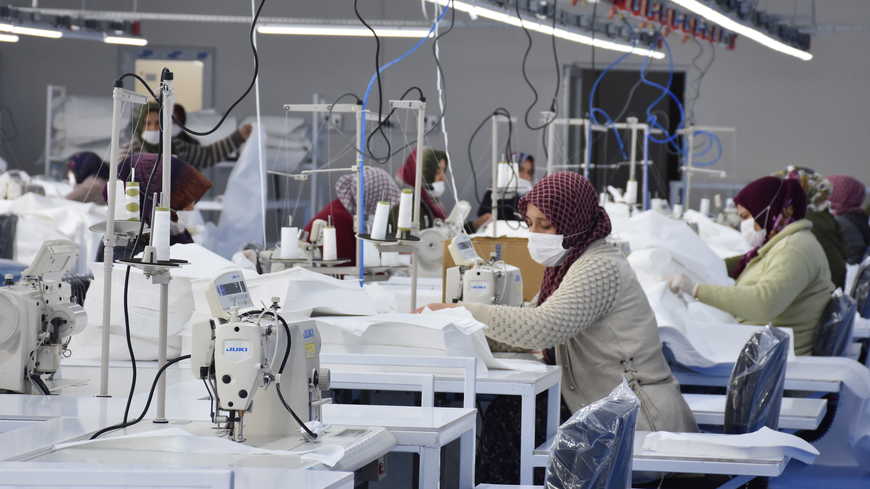Turkey’s clothing and textile sector, a vital source of employment and revenues, has become the worst-hit industrial branch in the coronavirus crisis, taking both domestic and external blows.
The pandemic-induced decline in Turkey’s clothing and textile sector is of concern to a population much larger than it might seem at first glance. The industry employs some 1.3 million people, including unregistered workers, in the manufacturing field, but an equally large labor force works in distribution and marketing. Also, cotton growers represent a significant part of the agrarian population, though their numbers have decreased in recent years.
Central bank figures show that credit card spending on clothing in the eight weeks since March 11, when Turkey confirmed its first coronavirus case, decreased 64% from the eight weeks prior to the outbreak. Overall credit card spending was 30% down in the same period. Accordingly, the share of clothing spending fell to 3.5% of total spending from 7.5% before the pandemic, as consumer demand focused mostly on food and health and cleaning products.
The shrinkage in the domestic market has been mirrored by a decline in exports, a vital source of hard currency for the Turkish economy, which was still reeling from a severe currency shock in 2018 when the pandemic hit.
Clothing and textile producers contribute up to 15% of Turkey’s exports, almost on par with the leading automotive sector. While the automotive industry accounts for 8% of imports, the share of the clothing and textile sector is 3%, making it one of Turkey’s few sectors that are net exporters, along with, most notably, the food sector. Imports of cotton, the main raw material of the industry, have grown in recent years, but local cotton producers continue to partially supply the sector. So, the clothing and textile industry could be termed as one “rooted” at home. For all those reasons, the turmoil in the sector has far-reaching repercussions.
In January and February, Turkey’s apparel exporters sold goods worth $3 billion to foreign markets, helped also by the depreciation of the Turkish lira. With the spread of the pandemic, especially in Europe, the principal market of Turkish-made apparel, exports fell by a staggering 40% to $1.8 billion in March and April.
Restrictions to contain the pandemic, coupled with sagging demand, have forced leading international brands such as Nike, Adidas, GAP, H&M and Macy’s to temporarily close their shores in an array of countries. The shares of many big apparel companies lost up to nearly 50% of their stock market value from late February to mid-March, and the downtick has yet to reverse.
Leading Turkish retailers, which operate mostly in shopping malls, met the same fate. Popular apparel brands such as Boyner, Mavi, Vakko and Ipekyol closed their shops and furloughed employees. Some sought solace in online sales. The slump in sales quickly hit production, forcing manufacturers to reduce or halt operations.
Excerpt only, visit source article at this link
You can follow our English language YouTube videos @ REAL TURKEY: https://www.youtube.com/channel/UCKpFJB4GFiNkhmpVZQ_d9Rg
And content at Twitter: @AtillaEng
Facebook: Real Turkey Channel: https://www.facebook.com/realturkeychannel/
